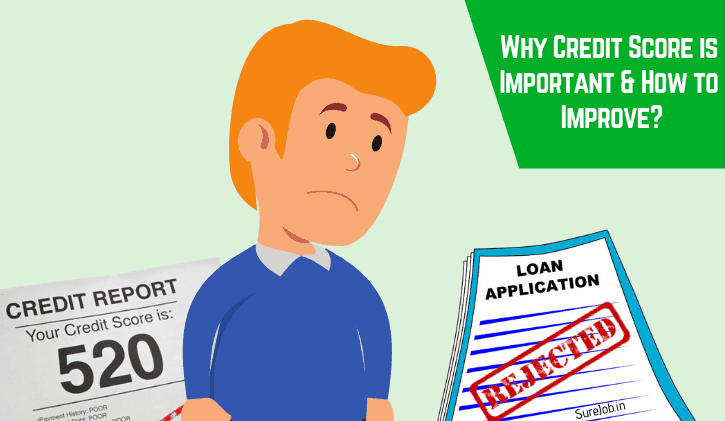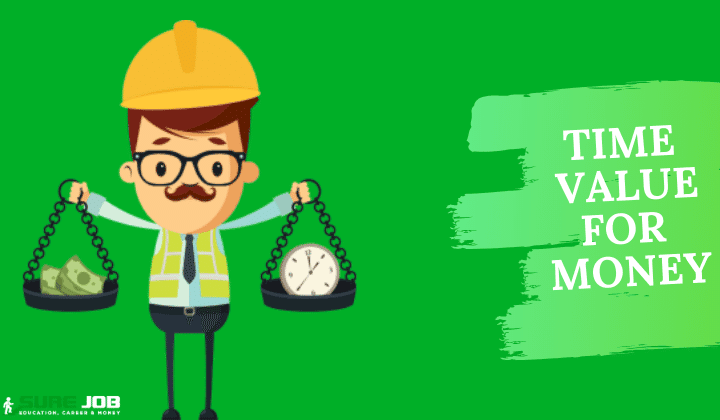Are you thinking of applying for a loan in the near future to buy a car, a new home or even to fund your child’s education?
If so, then you must know that banks and lending agencies will do a thorough check of your credit worthiness before advancing you a single rupee.
In other words they will try to find out if you are worth the risk they will be bearing by advancing you a cash loan on credit terms.
They will do this to ensure that you won’t default on repayments and are fully capable of meeting the terms of your loan arrangement.
This is where maintaining a healthy credit score (CIBIL score) can help you in getting your loan approved faster and possibly at a lower interest rate too.

But first you need to understand what is the meant by having a credit score and how you can go about ensuring that you have a good score.
What is a Credit Score?
In simple terms, a credit score is a statistical representation of your credit history in numbers.
It is also among the first things checked by a potential lender as part of the initial screening process of your loan application.
In India, the Credit Information Bureau India Limited (CIBIL), is considered to be the most reliable source for providing an accurate credit score hence it’s frequently referred to as your CIBIL score.
The other three authorized credit bureaus in India include; Equifax, Experian and CRIF High Mark.
Why a Good Credit Score is Important for you
Most of us need a loan at some point in our life – it could be for buying a new home, a new car or even for funding a new business.
A good credit score will ensure that you get the money (loan) you need from any bank or financial institution – on easy and flexible terms that do not impose a massive additional burden on you.
A bad credit score however will do just the opposite. Effectively shutting the door on any hopes you might have had of getting a loan on fair terms.
However it is possible to traverse the distance from being bad to good, simply by adopting effective money management tactics and paying off any outstanding debts.
Factors that affect your credit score
Checklist of the key factors that can affect your credit score can be defined as under;
- Defaulting on Loans: This can have a major negative impact on your credit score. Every time you default on a loan or a credit card payment – it lowers your credit score further.
- Zero debt: While you may be proud of the fact that you have never borrowed money or taken a loan in the past, it’s in fact bad news for your credit score. Why? Because credit rating agencies like CIBIL will not be able to gauge your repayment capacity, based on your previous history.
- Multiple Credit Cards: This can be held against you. Applying for multiple credit cards puts you in the category of people desperate for credit. This does not reflect well on your ability to service a loan effectively and you could be deemed a high risk prospect by the lender.
- Standing Guarantor for a Defaulter: Have you ever stood as a guarantor for someone who took a loan and ultimately defaulted on his payments? If yes, it could impact your own credit score.
- Have you closed a Credit Card recently? That could have been a major miscalculation on your part. People with an active credit card and a timely history of card repayments are much more likely to have a higher credit score than others.
How is a Credit Score Calculated?
Your credit score will be calculated by an approved credit information company like CIBIL – purely on the basis of your past financial record and credit repayment history.
Based on their analysis of your financial history, they will provide potential lenders with a numerical rating.
This is usually a three digit number – which will reflect how good (or bad) you are in terms of being a credit risk to the company where you have applied for a loan.
It works as a quick reference point of your credit worthiness for lenders approached by you for a loan.
The higher you score, the better your chances of getting the loan approved quickly with all the frills in terms of a lower interest rate and flexible repayment terms.
…And the Scoring Categories are
To help you better understand the scoring process and the implications for you, we have underlined some of the typical categories below.
- 550 & Below: If you happen to score in this LOW range, you might as well forget about getting your loan sanctioned. Banks and FIs will perceive you as a huge credit risk. But you can reverse this situation with careful credit management and paying off any outstanding debts & loans.
- 550-649: This is in the in-between If you happen to find a place here, you will find lenders to give you credit – but be prepared to pay a high rate of interest. It could be because of certain delayed payments by you in the past.
- 650-699: People in this category are defined as a medium credit risk – which means you will get the loan you seek with a decent RoI, but not a great credit limit. This way the lender is assured you will not breach your credit limit and make your repayments in time.
- 700-749: This is where people with the most solid credit history will find a place. The high scorers with an enviable credit record. If you find a place here, the loan is yours for the taking at a great RoI and a flexible credit limit to boot.
- 750 & Above: The crème de la crème category. Reserved for top performers who get the best terms and the most favourable repayment terms from lenders. A typical candidate would be a well-earning individual/ professional who has mastered the art of money and credit management.
Why knowing your Credit Score matters
Getting a loan sanctioned is not an easy task. Hence it’s advisable for an applicant to access his credit score beforehand to check for inconsistencies – which could adversely impact his/her chances of getting the loan approved.
The reason for this is that CIBIL has no means of collecting all this personal information on its own and has to rely on third-party vendors to do it for them.
This increases the possibility of unforced errors creeping in the final report.
These in turn can seriously jeopardize your chances of getting the loan approved, thereby dealing a serious setback to your plans for using the money.
Hence it makes a lot of sense to first access your credit score, rectify the errors (if any) and then put in your application for the loan.
But a word of caution here. A favourable credit score does not automatically imply that your request for a loan will be approved by the financial institution.
It is merely an endorsement of your good credit history, while banks, NBFCs and other lenders will also consider your repayment capacity before approving your loan request.
How to access your credit score for FREE
As per a directive from the Reserve bank of India, credit bureaus like CIBIL are obliged to provide one free credit report in a year for an individual.
Having said that there are several private fintech players which offer individuals free access to their credit report online.
A few examples in this category include;
Tips to improve a low credit score
Worried about not scoring well in your credit score analysis? Here are a few things that you can do to improve your credit score and get a timely approval for your loan application.
Repay on time always
Credit card payments or repayments for an ongoing personal loan – make sure that you make the payments on time to boost your credit score.
It will also go a long way in showing credit information companies that you are not only responsible but financially stable as well.
Avoid overspending on your credit card
This applies even if your card has a higher credit than most. Spending 50,000 on a card limit of one lakh might not sound so much to you, but it does impact your credit score.
Ideally, never spend beyond 30-40% of your credit limit.
Maintain a credit history
Having a credit card – even if you’re not a big spender – can be a good idea for your credit score since it gives credit information companies access to your past financial history and repayment ability.
Needless to add, a great track record of timely repayment can do wonders to improve your credit score.
Checking for Errors
Your credit report is usually comprised of data accessed from third-party sources like banks which may have lent you money or given you a credit card in the past.
There is always a chance that there could be mistakes if the data has not been updated at the lenders end. Make it a point to check your report for possible errors like a false late payment report or a loan default.
In Conclusion
It can be very frustrating when you don’t have enough money in the bank to help fund a dire financial emergency and your application for a loan gets rejected as well.
Which is why ensuring a high credit score becomes so important to maintain your financial wellbeing and that of your loved ones in times of need.
So do make it a point to follow some of the tips mentioned above and you could find yourself being financially independent in no time at all.








